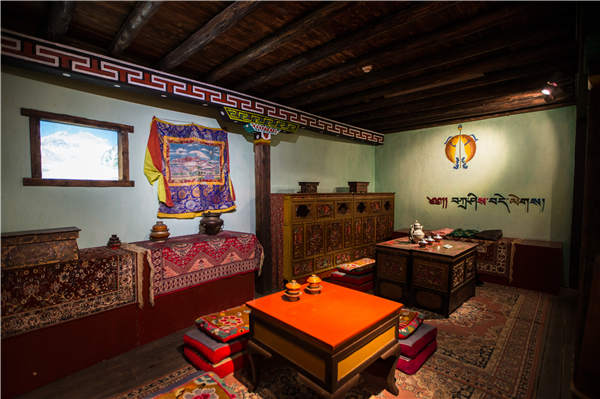
A Tibetan-style showroom in the China National Tea Museum.
Hangzhou's history as a prosperous place due to abundant natural resources means it was frequently graced by the likes of emperors and illuminati.
"The elite and the ordinary have long enjoyed tea in Hangzhou," says the museum's director, Wu Xiaoli.
Today, professors and drivers consider Longjing a staple, even though a half-kilogram of low-grade leaves cost around 1,000 yuan ($150).
Local tea expert Pang Ying attributes Longjing's status to the natural environment and cultural heritage of hand processing.
"A Chinese adage says flavorless tea is perfect tea," Pang says.
"Longjing is as light as the city's mountains and waters."
Hangzhou's Hupao Spring-said to have been excavated by two tigers-is specifically believed to provide the best water for brewing Longjing.
"The art of tea drinking is a balance between food and tea," Pang says.


















































